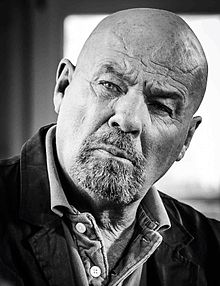
Kurt Hans Biedenkopf was a German jurist, academic teacher and politician of the Christian-Democratic Union (CDU) party. He was rector of the Ruhr University Bochum.

Holger Apfel is a German politician who was the leader of the far-right National Democratic Party of Germany (NPD) from 2011 to 2013. He was a member of the Saxon Parliament between 2004 and 2014, serving as the chairman of the NPD parliamentary group and a member of the presidium of the parliament.

The Landtag of Saxony, also known in English as the Saxon State Parliament, is the legislature of the Free State of Saxony, one of Germany's sixteen states. It is responsible for legislation, control of the government, and electing some state officials. The Landtag has existed in various forms since 1831, but the current body was established during German reunification in 1990. The Landtag is directly elected and has a term of five years.

Katja Kipping is a German politician of The Left party. She was a member of the Bundestag representing Saxony from 2005 to 2021, a federal co-leader of The Left from 2012 to 2021 alongside Bernd Riexinger, and the Senator for Integration, Labour and Social Affairs in the Berlin state government from December 2021 to April 2023.

Georg Milbradt is a German politician of the Christian Democratic Union (CDU) who served as Minister-President of Saxony from 2002 to 2008.
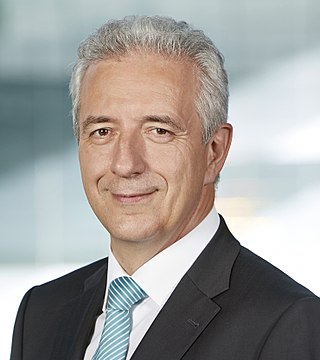
Stanislaw Tillich is a German politician of the CDU. He served as the 3rd Minister President of Saxony from 2008 to 2017. From 1 November 2015 until 31 October 2016, he was President of the Bundesrat and ex officio deputy to the President of Germany. Tillich is of Sorbian ethnicity and lives in Panschwitz-Kuckau (Pančicy-Kukow), which is 35 kilometres north-east of Dresden near Kamenz.

The Lower Saxon Landtag or the Parliament of Lower Saxony is the state diet of the German state of Lower Saxony. It convenes in Hanover and currently consists of 146 members, consisting of four parties. Since 2022 the majority is a coalition of the Social Democratic Party and the Greens, supporting the cabinet of Minister-President Stephan Weil (SPD).

Stephan Meyer is a German politician (CDU). He was directly elected to the state parliament of Saxony to represent the constituency of Loebau-Zittau 2.
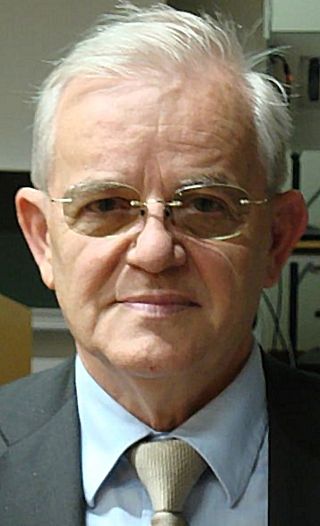
Erich Iltgen was a German politician of the Christian Democratic Union. From 1990 to 2009, he was president of the Saxony state parliament, the Landtag of Saxony.

Erich Matthias Rößler is a German politician, member of the Christian Democratic Union (CDU). Since 1990, he has been a member of the Saxon Landtag. From 1994 to 2004 he served as minister of culture, later as minister of science and art in the government of Saxony. Since 2009 he has been "Landtagspräsident", the speaker of the Saxon parliament.
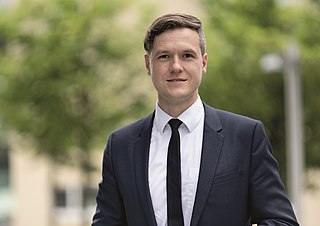
Jan Löffler is a German politician (CDU). Since 2009 he is a member of the Saxon Landtag. Currently he is the vice chairman and treasurer of the CDU-faction in the Saxon Landtag.
Horst Metz was a German politician.

An indirect presidential election was held on 12 February 2017 to elect the 12th President of Germany. Incumbent President Joachim Gauck announced on 6 June 2016 that he would not stand for re-election, citing his advancing age.
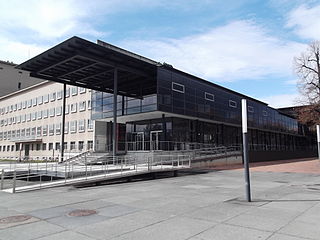
The Saxon Landtag is a building at the Bernhard von Lindenau Platz in Dresden, which serves as the seat of the landtag of Saxony, the Landtag of the Free State of Saxony.
Steffen Heitmann is a German Protestant theologian, church jurist and former politician. From 1990 to 2000 he was Minister of Justice of Saxony, and was a member of the Saxon Landtag from 1994 to 2009. From 1991 until his retirement in 2015 he was a member of the Christian Democratic Union of Germany (CDU).

Hans Joachim Meyer is a German politician (CDU). He served in the de Maizière cabinet as the last East German Minister for Education and the Arts. After reunification he became Secretary of State for Sciences and the Arts in the regional government of Saxony. In addition, he served between 1997 and 2009 as President of the Central Committee of German Catholics .

Christean Wagner is a German politician for the Christian Democratic Union of Germany (CDU). He served as minister for Culture and Justice in the state of Hesse and was chair of the CDU fraction in the Hesse legislature.

Karl Gustav Ackermann was a German conservative politician for German Conservative Party. He was a member of the Reichstag and the Saxon State Parliament.

Rico Gebhardt is a German politician for The Left and member of the Landtag of the Free State of Saxony since 2004. Within the Landtag he has been chairman of the parliamentary group of The Left since his election, and was from 2012 and 2019 Leader of the Opposition.

Peter Georg Schowtka was a German politician who served as a member of the Landtag of Saxony from 1991 to 2014. Schowtka was an ethnic Sorb.
